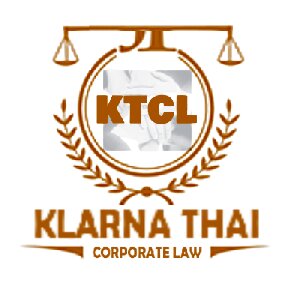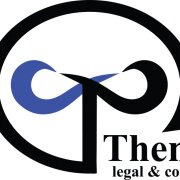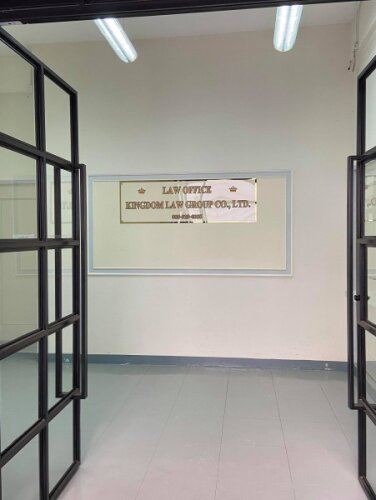Best Tax Lawyers in Watthana
Share your needs with us, get contacted by law firms.
Free. Takes 2 min.
List of the best lawyers in Watthana, Thailand
Thailand Tax Legal Questions answered by Lawyers
Browse our 4 legal questions about Tax in Thailand and read the lawyer answers, or ask your own questions for free.
- I am Swiss National received Social Securety from the USA year 2024 make arround 750.000Bath year . I single , leave in Rented Apartment 13 Years the moment.
- My Question is need to pay Tax on my Yearly Income Retirement Salary of 750000 Bath? Leave in a rented Apartment moment 13 years. i divorced for the past 25 years and am Single in Thailand Bangkok. have no other Income in my Savings Account, and I am living on... Read more →
-
Lawyer answer by Afe Babalola & Co. (Emmanuel Chambers)
If you are receiving U.S. Social Security benefits while living abroad, here are key points to consider regarding taxes and residency: - U.S. Taxes – As a U.S. income recipient, you may still owe U.S. taxes on your Social Security...
Read full answer - Retired living on social security income in Chiang mai
- Sir, I looked onto the tax chart where my income is at, 20%. I have a retirement OA visa that cannot earn any income while in Thailand. All my sources of income comes from SSI and a small annuity. I wire transfer money into a USD account and then do... Read more →
-
Lawyer answer by AD Legal Firm
Orders Nos. Por. 161 and Por. 162 of the Revenue Department, issued under Section 41, Paragraph 2 of the Revenue Code, stipulate that individuals required to pay tax based on overseas income are defined as follows: An individual who earns...
Read full answer - about the new tax law for foreigners
- I only have to pay taxes on the money I transfer to Thailand. How do I have to prove how much money I transfer? If I transfer let's say 1.000.000 Baht a year, how much do I have to pay for taxes if I paid already 130.000 Baht taxes in... Read more →
-
Lawyer answer by Lexiam Law
Only the income received overseas and/or in Thailand is subject to personal income tax. Transferred money is not subject to it but you have to declare the source and the purpose of transfer for it being able to be transferred...
Read full answer
Thailand Tax Legal Articles
Browse our 5 legal articles about Tax in Thailand written by expert lawyers.
- The Penalties Of Not Filing Your Income Tax Return As A Foreigner In Thailand
- Thailand has strict tax regulations that apply to both residents and non-residents. In recent years, the Thai Revenue Department has updated its policies on how both foreign and locally sourced income are taxed.For foreigners earning income from either of these sources, understanding these requirements has become more important than ever.... Read more →
- Legal Implications of Remote Work in Thailand
- Remote work, often referred to as telecommuting, has emerged as a dominant trend reshaping global employment landscapes. For Thailand, a country known for its digital nomad appeal and vibrant expat community, the rise of remote work brings unique legal, cultural, and operational considerations. Our comprehensive guide here explores the legal... Read more →
- Thai Legal Framework for Cryptocurrencies
- Technology, investment, and money have all been fundamentally altered by cryptocurrencies. Countries all throughout the globe struggle to design legal regimes that safeguard consumers while fostering innovation as these digital assets develop. Thailand distinguishes itself in this sense as it has one of the most thorough regulatory frameworks regarding cryptocurrencies... Read more →
About Tax Law in Watthana, Thailand
Tax law in Watthana, Thailand, follows the broader guidelines and statutes set forth by national Thai tax regulations, as Watthana is a district within Bangkok. Thai tax law covers a range of obligations for individuals, families, businesses, and property owners, all of whom must comply with taxation requirements administered primarily by the Revenue Department. The main forms of taxation encountered in Watthana include personal income tax, corporate income tax, value-added tax (VAT), property tax, and certain local duties. Because Watthana is a vibrant and diverse district, both residents and businesses often have to navigate complex legal and administrative procedures to stay compliant and avoid penalties.
Why You May Need a Lawyer
Seeking legal advice for tax matters in Watthana is common for many individuals and organizations. Here are some frequent scenarios where consulting a tax lawyer can be vital:
- Starting a business or registering a company and needing advice on the right tax structure
- Selling or purchasing property within the district and requiring clarity on property taxes
- Foreigners or expats looking for advice on income tax obligations, including double taxation treaty issues
- Disputes or audits from the Revenue Department regarding personal or corporate taxes
- Assistance in tax planning and optimization for both individuals and businesses
- Filing annual tax returns, especially with international or complex income sources
- Heirs or beneficiaries needing help with inheritance tax and estate matters
Local Laws Overview
Tax law in Watthana is governed by Thai national law, yet there are local administrative offices and requirements that can affect tax compliance. Key local legal considerations include:
- Personal Income Tax: Residents are taxed on worldwide income, while non-residents are taxed only on income earned in Thailand.
- Corporate Income Tax: Companies are taxed at varying rates depending on their classification and revenue thresholds.
- Value Added Tax (VAT): Most businesses with annual revenue exceeding two million baht must register for VAT.
- Property Tax: Land and Building Tax has replaced the older House and Land Tax, and is paid annually by property owners.
- Withholding Tax: Both individuals and corporations must withhold taxes on certain payments, such as rent or professional fees.
- Tax Filing Deadlines: Annual tax filing for individuals is usually due by the end of March; corporate taxes generally have different schedules.
- Double Taxation Agreements: Thailand has agreements with many countries to prevent double taxation, which is relevant for expats and multinational businesses in Watthana.
- Tax Inspections and Appeals: The Revenue Department has the authority to audit taxpayers, but legal recourse is available if disputes arise.
Frequently Asked Questions
Who needs to file personal income tax in Watthana, Thailand?
Anyone earning income in Thailand or residing in Thailand for more than 180 days in a tax year is generally required to file a personal income tax return, including residents of Watthana.
How is corporate income tax calculated for businesses in Watthana?
Corporate income tax is based on the net profits of the business. The standard tax rate is 20 percent, but certain small businesses and entrepreneurs may qualify for lower rates.
What are the main penalties for late tax filing or non-compliance?
Penalties can include fines, surcharges, and interest on unpaid taxes. Deliberate evasion can lead to heavier penalties, including possible criminal charges.
Is foreign income taxable in Watthana?
For residents, foreign income is taxable if it is brought into Thailand in the same year it is earned. Thailand’s double taxation agreements may provide relief depending on your home country.
Do I need to register for VAT as a small business owner?
VAT registration is compulsory if your business’s annual turnover exceeds two million baht. Voluntary registration is possible and sometimes advisable.
How is property tax assessed in Watthana?
Property tax, under the Land and Building Tax Act, is based on the appraised value of the property and the purpose for which it is used. Rates vary by usage (residential, commercial, agriculture).
Can I get tax deductions for certain expenses?
Yes, the Thai Revenue Code allows deductions for items such as life insurance, mortgage interest, education expenses, and charitable donations, subject to specific limits.
How do I appeal a tax assessment or audit finding?
You can file an appeal with the Revenue Department within 30 days of receiving the assessment. Legal representation is recommended for complex cases.
Are there any special tax considerations for expats living in Watthana?
Expats may benefit from double taxation treaties, and certain types of income may be taxed differently. Legal advice is important to ensure full compliance and utilization of possible exemptions.
What is the process for filing annual tax returns in Watthana?
Individuals usually file online through the Revenue Department’s e-filing system or in person at district offices. Required documents include identification, tax ID, and income details.
Additional Resources
If you need further assistance, consider contacting these helpful resources:
- Thailand Revenue Department - for tax forms, laws, and guidance
- Bangkok Metropolitan Administration (BMA) District Office, Watthana Branch - for local tax and property matters
- Board of Investment (BOI) - for business and investment tax incentives
- Federation of Accounting Professions of Thailand - for accountant and tax professional referrals
- Thai Bar Association - for finding qualified tax lawyers
Next Steps
If you believe you need legal assistance regarding tax matters in Watthana, it is important to act promptly. Begin by gathering relevant documents such as income statements, business records, contracts, and any tax notices you have received. Consider consulting with a local tax lawyer who is familiar with both Thai national laws and specific issues relevant to the Watthana district. A qualified professional can help you interpret your obligations, resolve disputes, communicate with government authorities, and plan for future tax efficiency. Take proactive steps to ensure compliance and avoid unnecessary penalties.
Lawzana helps you find the best lawyers and law firms in Watthana through a curated and pre-screened list of qualified legal professionals. Our platform offers rankings and detailed profiles of attorneys and law firms, allowing you to compare based on practice areas, including Tax, experience, and client feedback.
Each profile includes a description of the firm's areas of practice, client reviews, team members and partners, year of establishment, spoken languages, office locations, contact information, social media presence, and any published articles or resources. Most firms on our platform speak English and are experienced in both local and international legal matters.
Get a quote from top-rated law firms in Watthana, Thailand — quickly, securely, and without unnecessary hassle.
Disclaimer:
The information provided on this page is for general informational purposes only and does not constitute legal advice. While we strive to ensure the accuracy and relevance of the content, legal information may change over time, and interpretations of the law can vary. You should always consult with a qualified legal professional for advice specific to your situation.
We disclaim all liability for actions taken or not taken based on the content of this page. If you believe any information is incorrect or outdated, please contact us, and we will review and update it where appropriate.















